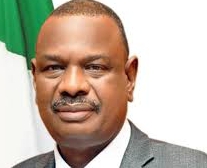The Transmission Company of Nigeria (TCN), says the Supervisory Control and Data Acquisition (SCADA) system that will effectively monitor, control field devices will be operational in fourth quarter of 2024,
Mr Sule Abdulaziz, the Managing Director of TCN, said this in an interview with the News Agency of Nigeria(NAN) in Abuja on Sunday.
NAN reports that the SCADA systems are used for controlling, monitoring, and analysing industrial devices and processes.
Abdulaziz said that the SCADA implementation had reached about 60 per cent completion and is expected to be completed by the last quarter of 2024,
He said that all the machinery offshore had been shipped into the country, adding that engineering and design works were ongoing, as reviews and modifications were being made continuously as the equipment is being installed.
“About 70 per cent of the equipment have been delivered to various sites and mounted in the sub-stations’ control rooms across the country.”
He also said that configuration, integration, and interconnection of these equipment commenced in July.
“ By middle of July, part of the grid was seen on the new SCADA system and this will be continuously expanded to other parts of the network.
“TCN has done a lot in terms of revamping transmission equipment nationwide; several sub-stations have been expanded, new transformers have been installed, others upgraded, and transmission lines projects have equally been executed.
“All these have contributed to increasing TCN’s wheeling capacity to 8100 Megawatts (MW) as of today,” he said.
Abdulaziz said that the diligent implementation of the Nigerian Electricity Grid Maintenance, Expansion, and Rehabilitation Programme (NEGMERP) had fast-tracked transmission infrastructure in the country.
He said that there had been milestone achievements in grid efficiency, maintenance, rehabilitation, equipment procurement, and expansion.
“We have successfully completed several transmission substations across the country, which has enhanced the capacity and efficiency of the power transmission network.
‘`We initiated the re-conducting of aged and de-rated capacity 132 Kilo Volt (KV) lines, and have also built new ones including 330kV transmission lines which have improved the reliability and capacity of the transmission system.
“Most aged transformers have been replaced with new ones, and the capacities of existing ones have been upgraded, resulting in improved system performance and efficiency.
“The company places strong emphasis on maintaining equipment and infrastructure through proactive maintenance practices and timely procurement of necessary spare parts.” 0
Abdulaziz said that the commitment had helped prevent disruptions, enhanced system performance, and reinforced TCN’s reputation as a dependable transmission system provider.
“In the last one year under President Bola Tinubu’s administration, TCN has witnessed outstanding successes in all aspects of transmission projects, including initiation, scoping, construction, network operations and maintenance.
“These, among other achievements, have had a transformative impact on the country’s power transmission infrastructure nationwide.
“It has consequently improved reliability, efficiency, and capacity, thereby, laying a more solid foundation for the country’s economic development and growth,” he said. (NAN)











